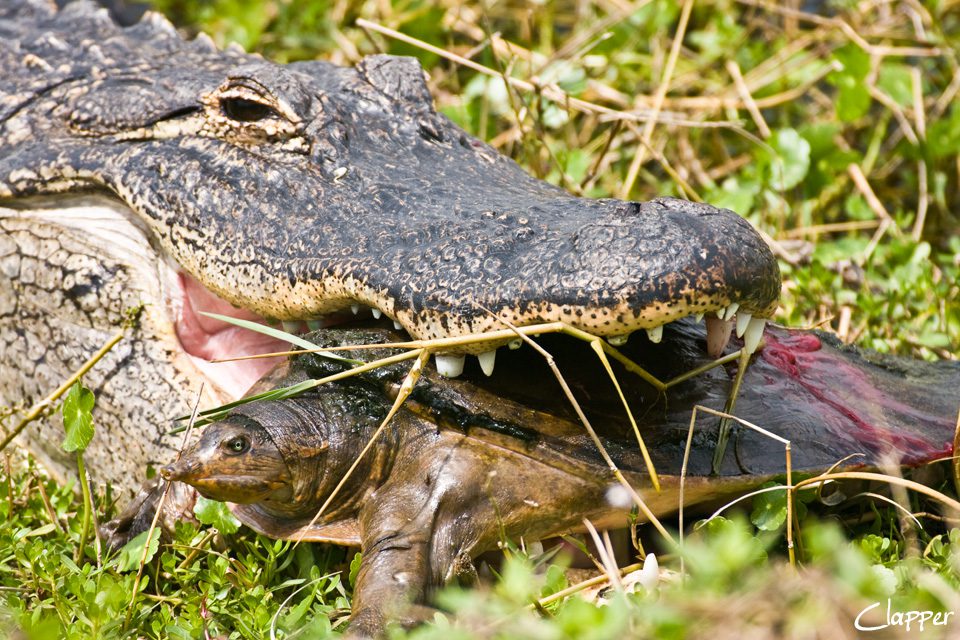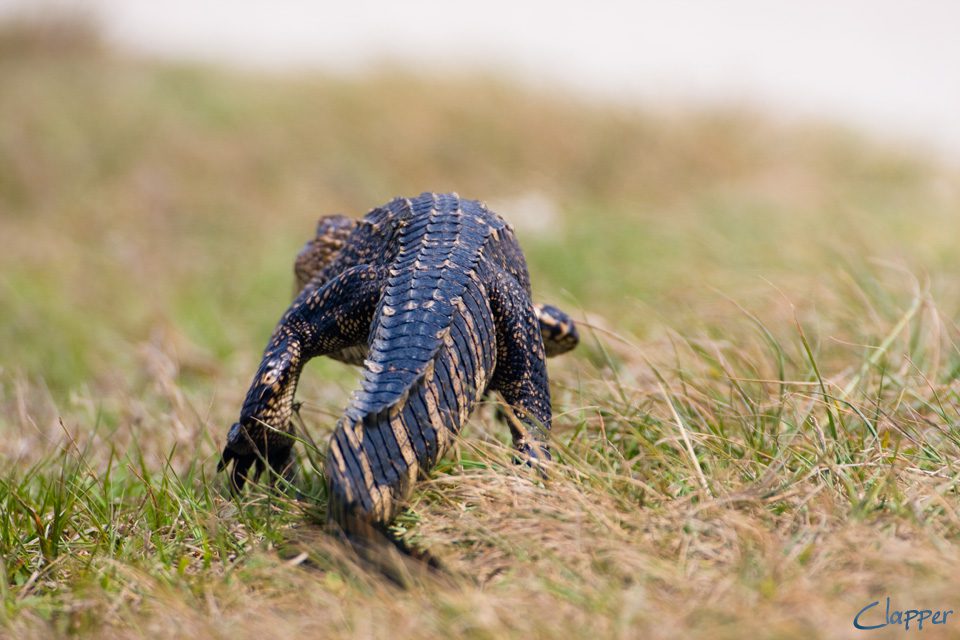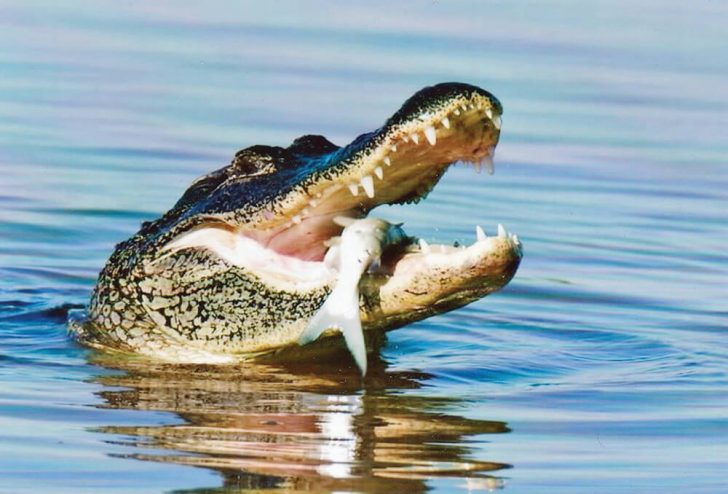By Kevin McCarthy
Having lost some hooked fish at the deeper levels of the ocean or lake to a barracuda or similar poacher, I’ve wondered if a gator in a river or lake has ever stripped a line of a caught fish. It’s probably happened, but I’ve never seen it, although I have seen my share of gators watching me fish as they hovered in the Wakulla River while I fished away.
And that got me thinking about how gators catch fish on their own—without resorting to stripping a line of a caught fish. I know that a hatchling can live off insects and small vertebrates, but a small gator depends on small mammals and small fish. Larger adults will eat turtles, birds, snakes and larger fish. I’ve watched enough documentaries and videos to know that gators are sly and patient, waiting until an unwary animal wanders by before making a very fast move to capture prey.
When an unsuspecting animal like a deer or hog drops its guard for a minute to take a drink from a river or lake, the gator will submerge, swim close to the animal, and then lunge out with jaws extended to grab any part of the prey, then drag it back to deeper water to drown it. If a gator sees a fish of almost any size under water, it will chase the fish, seize it, kill it, and eat it right on the spot. The alligator has been around for over 37 million years, in which time it has perfected its hunting skills.

The living dinosaurs may be relatively slow on land, but they can reach 20 miles per hour in the water and can swim a long distance undetected in search of a beaver swimming across a river or a dog taking a drink at the edge of a lake. I live in a neighborhood in north Florida where I’ve actually seen a 6-foot-long gator walking along a paved street in search of something. My dogs thought the animal was just a log about 50 yards away until the log got up and started meandering down the street to the woods.
Young gator hatchlings are highly susceptible to being eaten by birds, otters or large gators. But once gators reach 4 feet or more in length, they only have to worry about larger gators and humans. Alligators have made a remarkable comeback from when they were listed as an endangered species. Nowadays they are no longer endangered and can expect to live between 30 and 50 years.

On a side note, I’ve spent most of my career teaching at the University of Florida, where the mascot is a gator and the football stadium has been nicknamed “The Swamp.” Bulldogs, razorbacks, and Seminoles seldom get out of the swamp alive.
Kevin McCarthy, the award-winning author of “South Florida Waterways” (2013 – available at amazon.com for $7), can be reached at ceyhankevin@gmail.com.
